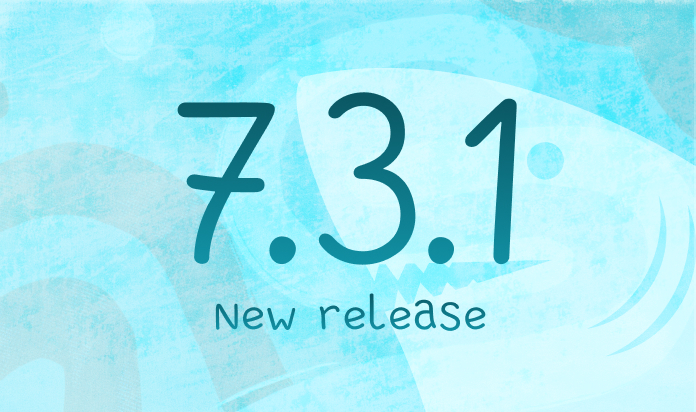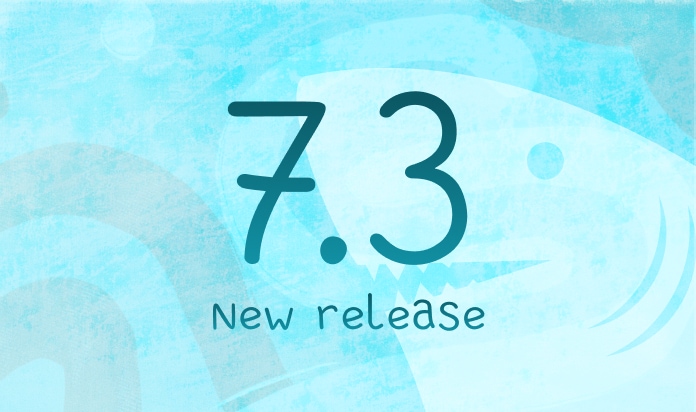Release notes 7.1.1


Fixes
Megaladata Desktop: Display of the resulting file name in the title of the file dialog in GTK was corrected in the desktop edition for Linux.
Megaladata Desktop: When there was no file selected, GTK open file dialog showed "./../../" title in the desktop edition for Linux. It was deleted from the title.
Megaladata Server: "Access Violation" error was corrected. It occurred in Linux while reading erroneous or damaged configuration server files (Settings.cfg, Users.cfg, etc). Now, in this case the information on this problem is recorded in journald.
Python: /dev/shm/megaladata access conflict was eliminated. The problem occurred if there were several users of one Linux computer with installed Megaladata.
Visualizers, components: The value of the Time field for 12.30.1899 contained not only the time value but also the date. Only time is displayed after introduced corections for 12.30.1899. Previously, the error could be observed here:
- in Data quality visualizer histogram (#9731);
- in the Coarse classes visualizer in class bounds captions (#9733);
- in Binning of Coarse classes when generating the caption for the time values (#9735, #9734);
- Cube (#9730);
- in Regression report visualizer in description of the model parameters (#9736);
- in the Cluster profiles visualizer for the minimum, maximum and average values of the Date/Time field (#9732);
- in the Statistics visualizer on the histogram and also for the minimum and maximum values of the Date/Time field (#9728).
Chart visualizer: When exporting the chart to PDF, its lower part was cut if the image height exceeded the width. The required corrections were introduced (#10174).
Binary сlassification assessment visualizer: NPV and OPR graph lines were not displayed on the accuracy chart, although markers designated for them were displayed (namely, the charts were constructed). The regression error occurred in version 7.0.2 was corrected (#10178).
Cube visualizer: The filter by measure did not work. The compare value in it was specified as the default value (0, "" etc), namely, it was not changed by the user during its configuration. Filtering was effective after replacing the compare value with the value different from the default value and then with the value needed for the user (0, ""). Error of behavior was corrected (#9929).
Duplicates and Contradictions: "Abstract method called" error was corrected. It occurred in the Data quality visualizer configured on the node that received data from the Duplicates and Contradictions node (#10201).
Replace: When selecting Manual input replace method, the repeated pressing on Export button to export the replacement table caused the following error: "Failed to go to the following address: blob:...". The error occurred in the desktop Megaladata version. The required corrections were introduced (#10164).
Import from Excel file: The following error was corrected: "Failed to open / Failed to open Excel". It occurred while attempting to import the file exported from Power BI or Teradata SQL Assistant (#9849).
Calculator: If the user changed the expression and pressed F3 key without exiting the editor (open Preview), changes were not taken into account in the result in Preview. The error was corrected (#10166).
Workflow construction area: While attempting to rename the locked node, it was not possible to change the caption after "Node is locked" error message, and the lock icon was hidden at the node caption. Also translations of rows disappeared at the multiline caption of the node. The errors were corrected (#10077).
Workflow construction area: When dragging the component to the workflow construction area in the heavily loaded system, it was unfixed from the cursor and added to the workflow construction area just after it appeared over this area. In this case, the node was not selected. Error of behavior was corrected (#10168).
PostgreSQL connection: The following error was corrected: "Error on data waiting from the connection: No such file or directory. Socket Error Code: 2($2)". It occurred irregularly in the editions for Linux, and there were no exact reproduction steps (#10179).
XSD Schemas Set Connection: Memory leak was eliminated. It occurred if the connection was configured for the schema with the abstract elements (#10205).
Improvements
Megaladata Desktop: TCMalloc memory manager was connected instead of the standard Glibc in the desktop editions for Linux. It slowly gave unused memory released by the program back to the system.
Megaladata Desktop: When Megaladata Desktop was started via the command line with the package file name transfer, the first module workflow was opened via its argument, namely, similar to the situation when the package was started via the application menu (#7090).
Megaladata Desktop: The last opened folder in the file dialogs is remembered when working with Linux (#10150).
Megaladata Desktop: KDE file dialog but not GTK is used in the application for Linux that works in the environment of KDE desktop. The current desktop environment is defined by the value of the variable of XDG_CURRENT_DESKTOP environment. KDE dialog use can be disabled by the variable of NO_Megaladata_KDE_FILE_DIALOG environment. In the case of any errors that do not allow to start KDE file dialog, GTK file dialog will be used (#10153).
Megaladata Server: When working with Linux, for logging megaladatad start errors instead of syslog journald is used. If API journald is not available, the message is recorded in stderr.
Coarse сlasses: The situation when the coarse classes count was equal to 1 was taken into account. Previously, in the case of the single class its caption for the continuous values was generated as follows: "up to %d" (for example, "up to 9"). Now, it will be as follows: "...".
Application: Comparison of the variable values with the rows inside was optimised. As a result, Row filter nodes in some workflows are activated 25% faster.
See also



